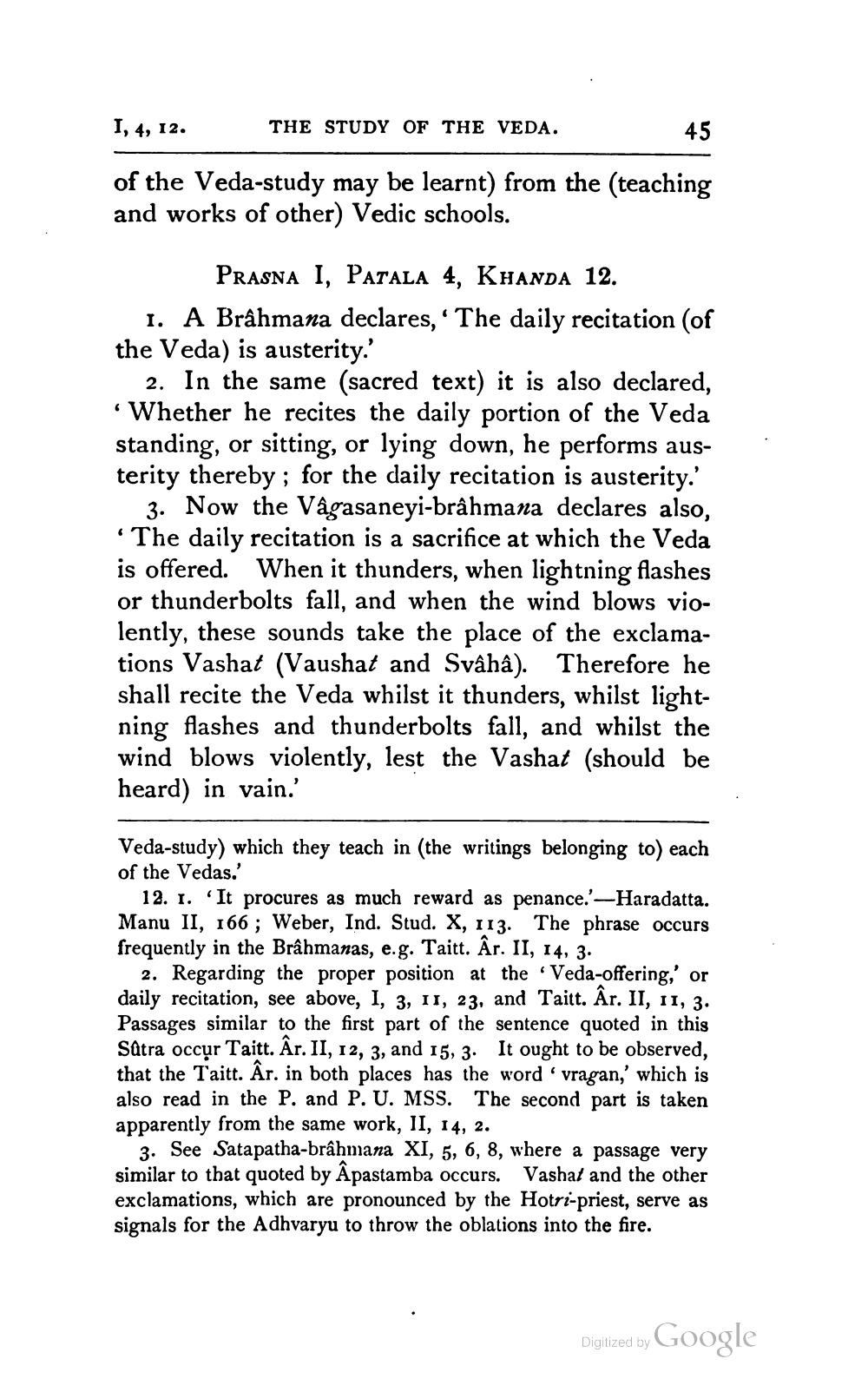________________
I, 4, 12. THE STUDY OF THE VEDA.
45 of the Veda-study may be learnt) from the (teaching and works of other) Vedic schools.
PRASNA I, PatalA 4, Khanda 12. 1. A Brâhmana declares,' The daily recitation (of the Veda) is austerity.'
2. In the same (sacred text) it is also declared, Whether he recites the daily portion of the Veda standing, or sitting, or lying down, he performs austerity thereby; for the daily recitation is austerity.'
3. Now the Vâgasaneyi-brâhmana declares also, • The daily recitation is a sacrifice at which the Veda is offered. When it thunders, when lightning flashes or thunderbolts fall, and when the wind blows violently, these sounds take the place of the exclamations Vashat (Vaushat and Svâhâ). Therefore he shall recite the Veda whilst it thunders, whilst lightning flashes and thunderbolts fall, and whilst the wind blows violently, lest the Vashat (should be heard) in vain.'
Veda-study) which they teach in (the writings belonging to) each of the Vedas.'
12. 1. It procures as much reward as penance.'-Haradatta. Manu II, 166 ; Weber, Ind. Stud. X, 113. The phrase occurs frequently in the Brâhmanas, e.g. Taitt. Ār. II, 14, 3.
2. Regarding the proper position at the Veda-offering,' or daily recitation, see above, I, 3, 11, 23, and Taitt. Âr. II, 11, 3. Passages similar to the first part of the sentence quoted in this Sätra occur Taitt. Ar. II, 12, 3, and 15, 3. It ought to be observed, that the Taitt. Âr. in both places has the word 'vragan,' which is also read in the P. and P. U. MSS. The second part is taken apparently from the same work, II, 14, 2.
3. See Satapatha-brâhmana XI, 5, 6, 8, where a passage very similar to that quoted by Apastamba occurs. Vashat and the other exclamations, which are pronounced by the Hotri-priest, serve as signals for the Adhvaryu to throw the oblations into the fire.
Digitized by Google




